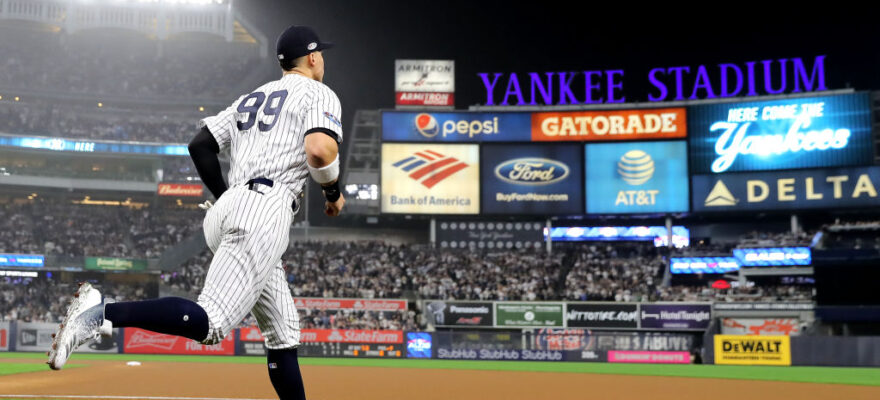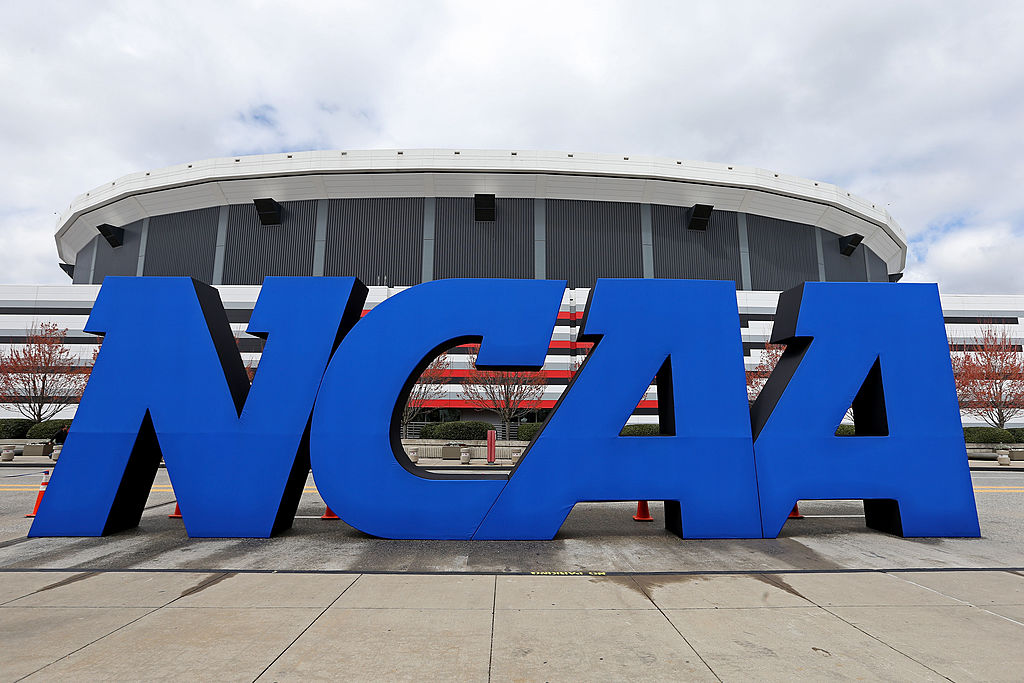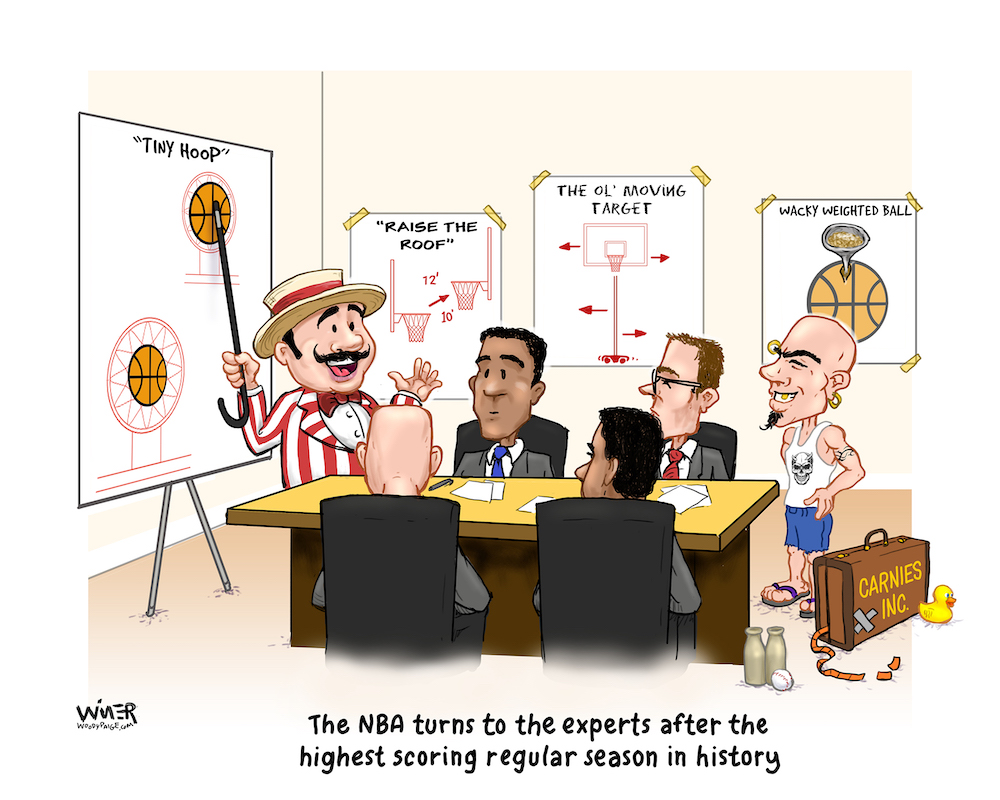The Coronavirus pandemic certainly hasn’t produced any “winners” (well, except for maybe Jeff Bezos), but it has left a long list of losers. Owners and players from all over professional sports are among them.
Now, as Major League Baseball tries to find a way to return to the field and give fans some semblance of a season, the MLB owners want to share their losses with the MLB players.
Back in late March (seems like a lifetime ago, doesn’t it?) the MLB Players Association agreed to reduce players 2020 compensation to only the amount equal to games played. Considering that many of the players have guaranteed contracts and probably could have legally demanded payment in full, it seemed like a very fair deal. After all, think about all the former players over the years who got paid for not playing when they had guaranteed deals.

A few weeks later, however, faced with the likelihood of games being played in stadiums without paying customers, and seeing several other revenue streams running dry, the owners decided they wanted to renegotiate.
Instead of paying the players their previously agreed upon salaries on a pro-rated basis, the owners tried to turn the clock back and proposed that the players accept a 50-50 revenue split this season (the players said no thanks.) This would have meant that the players would share in the owner’s reduction in revenue for 2020. The owners have said they stand to collectively lose $4 billion this season, although that accounting is being called “dubious at best.” Whatever the numbers are, this plan would effectively become a salary cap – perhaps the two dirtiest words in the MLBPA language. As super-agent Scott Boras put it, “you don’t privatize the gains and socialize the losses.”
You might say that the owners got caught trying to steal.

There’s no question that the industry as a whole is taking a huge hit from the Coronavirus shutdown. But baseball has been making huge profits the past several years, and the owners share of those profits has been on the rise. Most of that is due to broadcast revenue, national AND local. The number of fans in the stands doesn’t factor in as the major revenue producer, nor are attendance figures the reason some teams are labeled big market clubs, and most aren’t.
Here’s an example: In 2019, the New York Yankees drew 3.3 million fans to Yankee Stadium. The Colorado Rockies drew 2.9 million fans to Coors Field. New York averaged about 4,000 more people in the seats every night than Colorado. That’s not a huge discrepancy in crowd noise or ticket revenue.
So how is it that the Yankees can afford a payroll of $228 million for one season?
National TV and radio revenues are shared equally among the teams. The Yankees and Rockies get the same amount. Not so with local. The Yankees local broadcast revenues – income that is not shared with anyone – in 2019 was a nice tidy $115 million, all for themselves.
Within the National League West, the Los Angeles Dodgers local broadcast revenue was a staggering $239 mil last season. Their payroll was $193.5 mil, so L.A. made a profit before they even sold a single game ticket in 2019.
Meanwhile, the Rockies payroll of $145 mil was supported by only $42 million in local broadcast revenue. Obviously, ticket revenue means a lot more to Colorado’s bottom line than it does to New York’s or L.A.’s.
Assuming things would not have changed drastically for the 2020 season, the Yankees and Dodgers would be just fine financially if what’s left of the 2020 season were played in front of no live fans. The Rockies? Not so much.
All this makes the answer to all these new financial concerns from the owners crystal clear: Before the MLB owners ask the players to take an even bigger pay cut than they’ve already agreed to, the billionaire owners should be coerced into sharing all local broadcast revenue amongst themselves. Pool all of it. Spread that wealth and there’d be an even financial playing field…and no need to ask the players to play for less.

Major League Baseball has had wonderful parity over the past three decades – far better than the salary cap laden NFL or NBA. The sport does not need a stinkin’ salary cap. The MLB owners appear to be taking advantage of the chaos caused by the pandemic to try once again to reach back a quarter century and attempt to force a salary cap into the game — a move that would do nothing more than further enrich the wealthy owners.
It simply won’t happen.
Instead the owners should do something that’s good for the long term health of the game. Sharing local broadcast revenue would help all those mid and small market clubs thrive financially and make the industry as a whole even stronger than it was before the Coronavirus came ashore.
Listen to Mark Knudson on Monday’s at 12:30 with Brady Hull on AM 1310 KFKA and on Saturday mornings on “Klahr and Kompany” on AM 1600 ESPN Denver.
More from The Woody Paige Sports Network:
- The Designated Hitter is here to stay – in the NL and across MLB
- Woody Paige: That time I played blackjack with Michael Jordan in Monte Carlo
- Woody Paige: The Chargers need to move back to San Diego (VIDEO)
- Super Bowl LV odds shift following Tom Brady free agency decision
- Betting odds to be the New England Patriots Week 1 QB in 2020
- Dave Portnoy has Roger Goodell between a $250k donation and a hard place
















